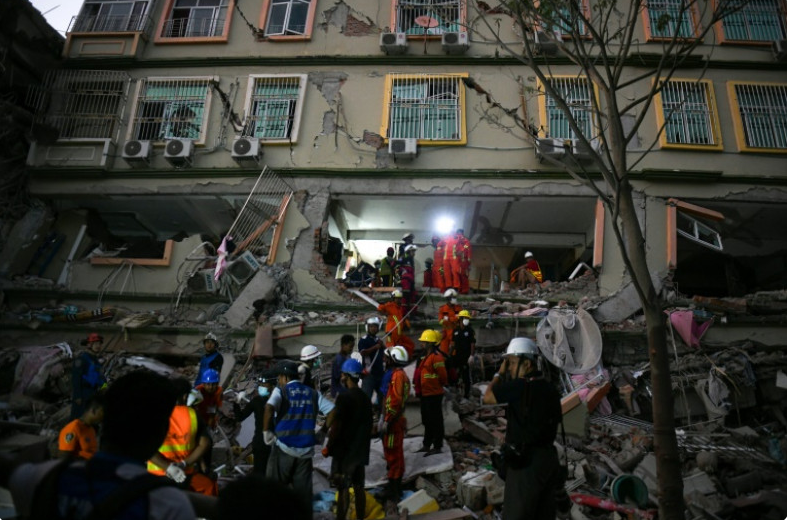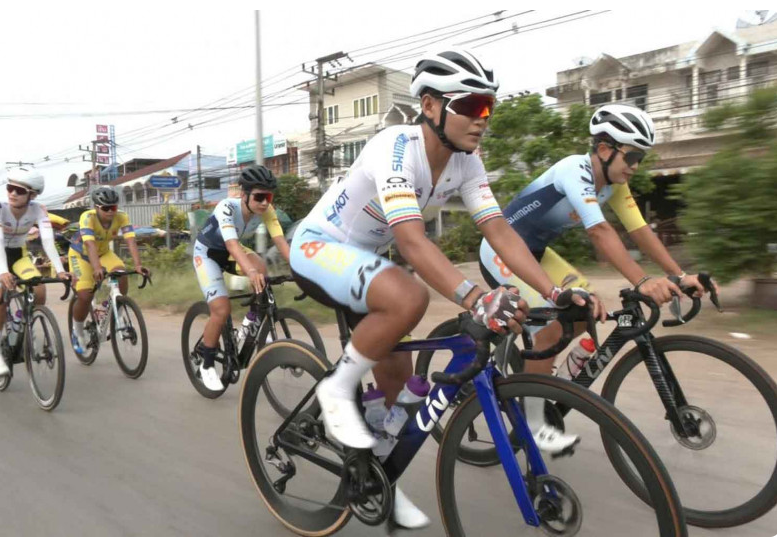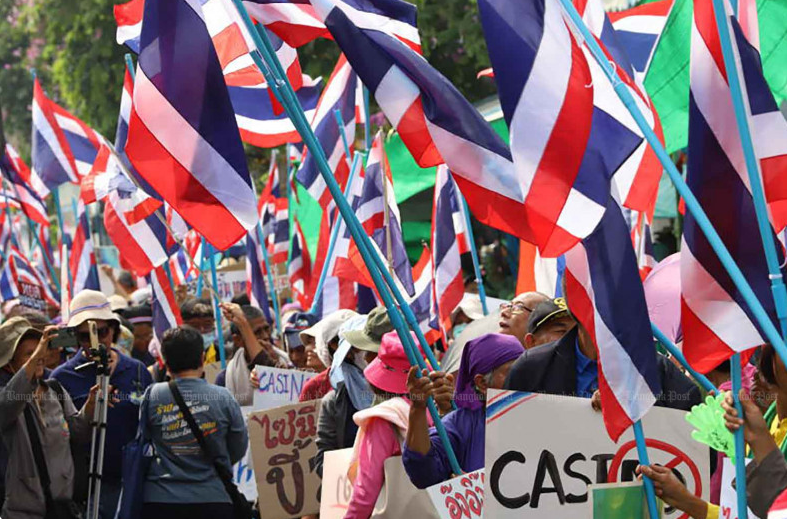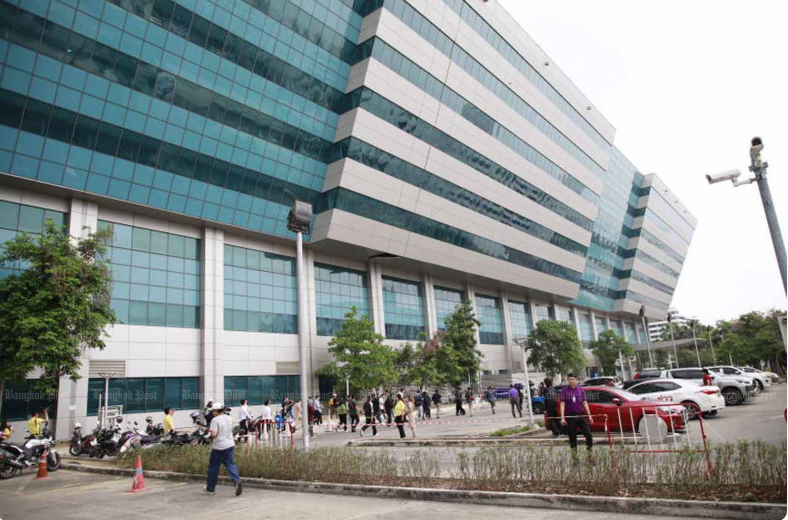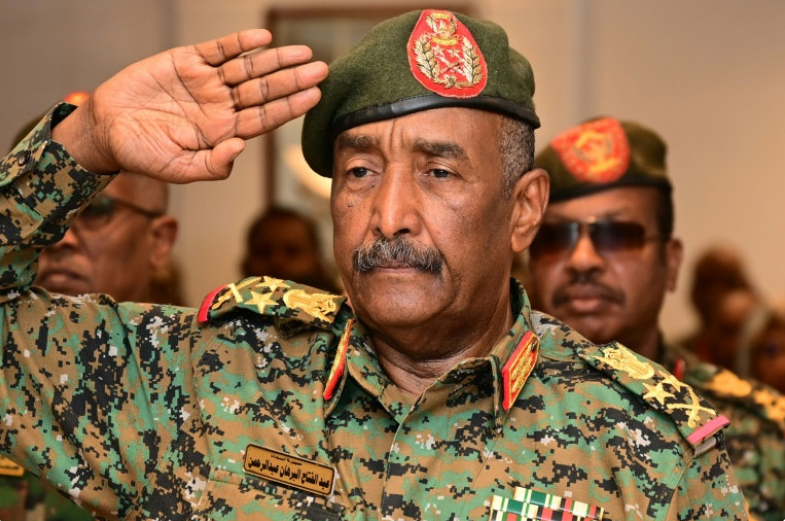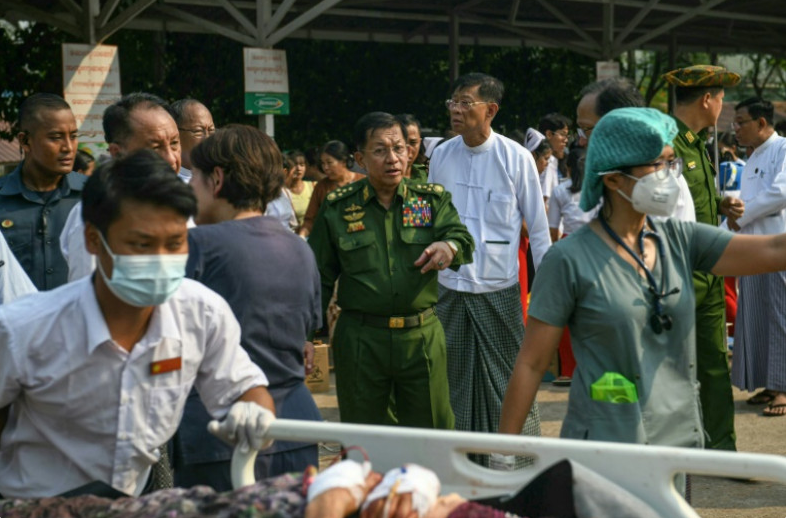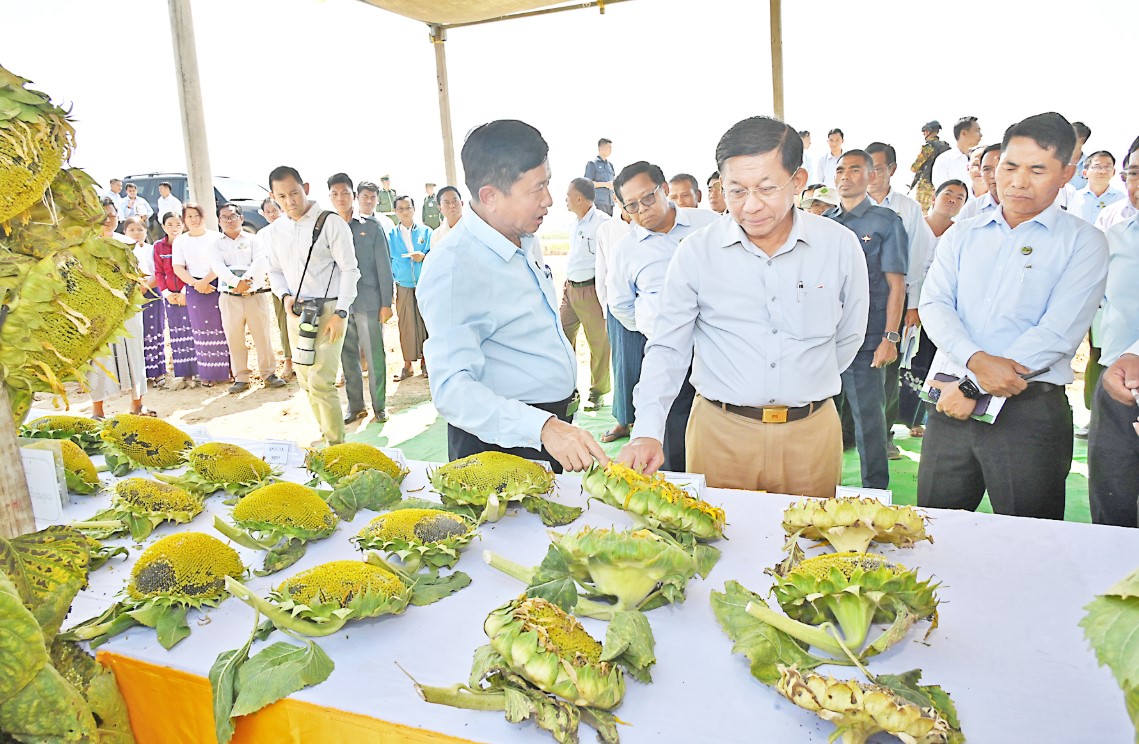Senior General Min Aung Hlaing, Chairman of State Administration Council Prime Minister, inspects the progress of conducting agricultural activities of Zeyathiri and Tatkon townships in the Nay Pyi Taw Council Area.
March 12
This morning, Chairman of State Administration Council Prime Minister Senior General Min Aung Hlaing together with SAC Joint Secretary General Ye Win Oo, SAC members, union ministers, the Nay Pyi Taw Council chair, the Nay Pyi Taw Command commander and officials inspected the procession of carrying out the agricultural tasks in Zeyathiri and Tatkon townships in Nay Pyi Taw Council Area.
Land reclamation for mechanization farming Upon arrival at the mechanized farming land reclamation project at near Pinlaung junction in Aungzeya, Mautaw, Thethnininn village tracts in Zeyathiri Township, the Senior General and party heard a report on implementation, points of the project, inclusion of feeder canals and production roads, possibility of triplecropping in the area which could be planted monsoon crops only at present through the project presented by Union Minister for Agriculture, Livestock and Irrigation U Min Naung and officials at the briefing hall.
In response, the Senior General said that the mechanization farming project requires a hefty sum of money, but it will be highly challenging and rewarding benefit for an individual as well as for the country. Therefore, performance should be optimized in the execution of the farm mechanization project which should be in all corners of the country.
Farmers must be informed about the merits of mechanized farming As the saying goes “A good start promises a better future,” the project encompasses the task of organize crops lands, reclaiming land for mechanized farming, land preparation with machines for attaining long-term benefits.
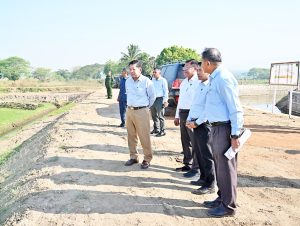
In accordance with the simplest method of farming – particularly seeds, soil, water and technology – land has to be methodically prepared, quality strains, irrigation water needs to be out there and appropriate strategies have to be employed to fulfill the target.
The mechanized farming project which has recently come into being must be a model one with regularized files of its growth and yield. No matter whatever crop is to be cultivated, required plants per acre should occur.
Rural people are an important part of the country as they are the majority who are engaged in farming.
Because of this, their socio-economy needs to be elevated. He said he also examined the requirements of other issues.
During the visit to the mechanised farming area, mechanized paddy cultivators were seen partly working in paddy fields in the project area and the Senior General and party also took care of their needs the relevant officials reported.
Myanmar-Korea advanced rice mill The Senior General and party next visited the Myanmar-Korea Advanced Rice Mill in Sein Sar Pin Village and were welcomed there by the facility’s supervisor, U Aung Zaw Oo, and other officials.
The officials at visit introduced the milling process and local rice varieties.
Then in the conference hall of the rice mill, jointly Organized by the Director General of Department of Agriculture and Ministry of Agriculture officials
Livestock and Irrigation offered insight on several big topics. These included the brief history of the establishment of the Myanmar-Korea Advanced Rice Mill, its capacity to store and mill locally produced rice, the conditions for distributing the rice produced, conditions under which cooperatives can operate rice mills collectively, as well as the advantages and challenges faced by these cooperatives.
The officials also detailed the course of action going forward.
Addressing the presentations, the Senior General stressed the need for rice that is consumable and marketable.
When calling for more rice with good eating quality and marketability to be grown, I also would like to urge to gain a market in the world for Myanmar’s Paw San Mhwe rice, to be mentioned a few among others out of many where prioritising is urgently needed.
Four-Lane Extension on Nawin Chaung Bridge (Asone)- Work Progress The Senior General and members did on-the-spot inspection of sustainability work on Nawin Chaung Bridge (Asone) four-lane extended 0n-nawin chaung bridge (Asone) that collapsed in September (2024) due to torrential rain and erosion.
Recent undertakings include straightening the river, building retaining walls and dredging the waterway near the approach to the bridge to secure its longterm stability. Later, the Senior General gave necessary guidance to the Union Minister of Construction according to the submissions.
Status of Operations for the 80-Acre Winter Sunflower Plantation Senior General and members then visited the winter sunflower plantation of 80 acres, managed by the Ministry of Agriculture, Livestock and Irrigation, Department of Agriculture, in Shawkone Queue, Tatkon Township. Officials gave an overview of successful cultivation of winter crops and summer paddy on farmland by Shawkone Village which was damaged by Typhoon Yagi in September last year.
They also discussed the plant of Yezin hybrid sunflower-1 variety growing successfully for the first time as winter sunflower plantation.
Senior General stated that efforts should be made for success of oil-seed crops as our country is being dependent on importing edible oil every year, in making remarks with the presentations.
Reiterating that target for oilseed crops like sunflowers would also bring down edible oil, he said,
He stressed the importance of properly executing sequential cropping and obtaining good harvest and wishes local farmers in a vehicle parade.
The Senior General and party visited the Kangyi Livestock Zone in Kangyi Village, Tatkon Township.
In the visit, U Than Htun Oo, the Chairman of Nay Pyi Taw Council, gave an overview of the implementation of the Kangyi, Shwe Myot, and Pyaunggaunggyi livestock zones under Nay Pyi Taw Council area and the compliance to the prescribed standards in each zone and the development of livestock activities and their enhancement.
Querying the explanations, the Senior General said that he had set two national programs which intend to build a thriving country with adequate food and water resources for people with full nutrition.
To this end, we are creating units of agriculture and livestock for regional self-sufficiency of meat, fish, eggs and vegetables. The first priority, naturally, is to local sufficiency before national sufficiency and finally exports.
An urban population of c. 30 percent demands sufficient meat, fish and eggs. Meanwhile, rural residents who have local livestock are involved in poultry farming and need a more scientific and efficient approach.
Population- to-meat consumption ratios need be calculated at the regional level, outlining daily, monthly, and annual requirements to achieve this.
Livestock should be systematically managed accordingly. Except for the Nay Pyi Taw Council area, all states and regions should judge for themselves how much food sufficiency they need and plan livestock in an orderly manner.
Top of aerial view of a pile of hay, livestock feeding, grazing, livelihood and food business in livestock farming.
The potential for agriculture and livestock activity in our country is much more than in countries like Turkey.
You should try to produce more of the agricultural products, livestock products and agriculture-based industrial goods. The development of each zone of livestock will fulfill domestic demand and also allow excess products to be exported as raw meat.
MSMEs can also process and export the finished goods.
They also offered other essential instructions.
The Senior General and members looked around the livestock operation of U Tin Myaing’s pig farm, U Myat San’s broiler and layer estate and U Twan Khin Win’s dairy and beef cattle breeding farm in the Kangyi Livestock Zone and made reports of officials for necessary instructions.
Views were also expressed by an official and a farmer regarding a land development project for industrial farming in the Pinlaung intersection area of Zeyathiri Township in Nay Pyi Taw Council Area.
The systematic land reclamation team (Upper Myanmar) based in Leway under the Department of Industrial Development is said to be in charge of this.
Town, are performing this work using department vehicles and personnel. The project started on December 17, 2024, and completed on February 28, 2025. Farmers are now getting ready to grow summer paddy on these reclaimed lands.
Currently, roughly 100 acres have been planted, with works to plant the remaining 170 acres slated to begin.
Agricultural equipment also has been available (even in the off-season) to help in timely harvesting and transportation, ensuring high-quality produce.
The fields cover a large, level area and use less water than previously. Wide fields allow the use of agricultural machinery in full, minimizing fuel consumption. The application of access road also allows agricultural machines to work around the clock permitting farmers to shift from single to double or triple cropping.
The shift from traditional means to mechanized farming reduces the dependence on agricultural labour, allowing the surplus human workforce to be channelled to other national development initiatives.
State-provided benefits of land reclamation are most appreciated. Before I owned around 14 plots in land, now I have 4 plots only. Water management has also been greatly enhanced. Earlier, we had only two-three water sources, but now, we get water directly from canals, courtesy development work done by the state.
All farmers greatly benefit from these projects.
The water pumping system is an added feature that makes it work more efficiently. As farmers, we are sincerely grateful to the state as it is making these developmental supports available to us free of charge.


